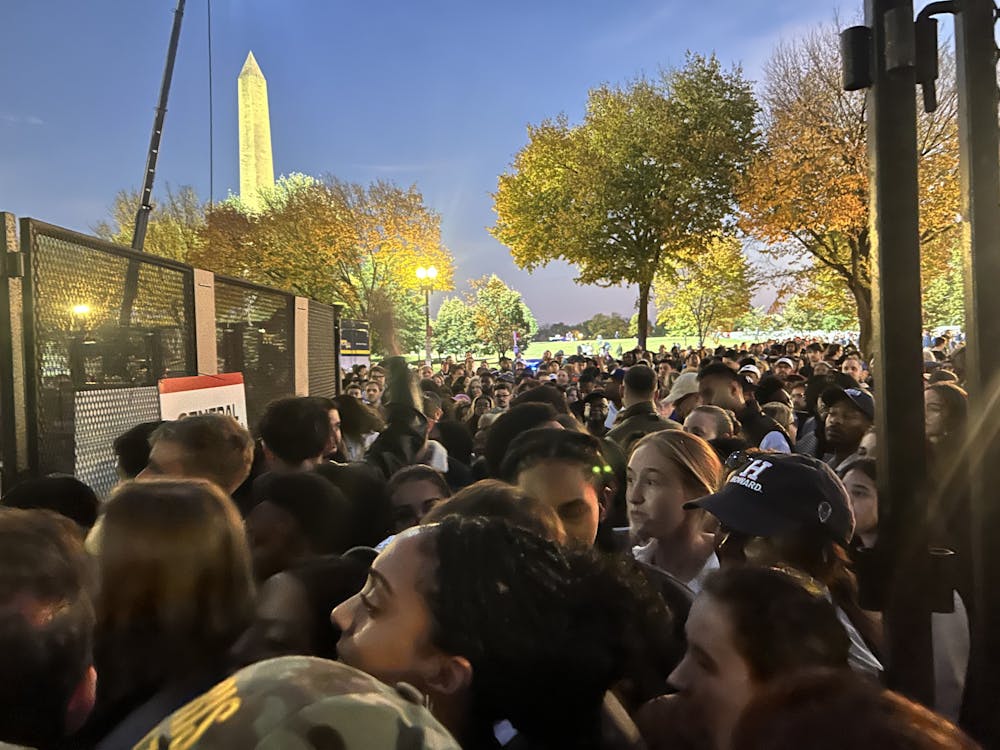At Former President Donald Trump’s six hour NYC rally in late October, conservative media personality Tucker Carlson described vice president Kamala Harris as a “Samoan Malaysian low IQ former California prosecutor.” David Rem, a childhood friend of the former president, clutched a crucifix and told the crowd Harris is the “antichrist.”
These statements follow Trump’s July comments to NABJ reporters that he “didn’t know [Harris] was Black until a number of years ago when she happened to turn Black, and now she wants to be known as Black. So I don’t know, is she Indian or is she Black?”
This question is one that has haunted Harris as she has embarked on the fight for the presidency. As the child of Afro-Jamaican and Indian immigrants, Harris’ vice presidency and contention for the presidency are representative of a change in the makeup of the country, and not everyone is okay with that.
Despite having graduated from Howard University, the highest academically ranked historically Black university, and being a member of Alpha Kappa Alpha Sorority Inc., a historic Black sorority, Harris cannot seem to escape accusations against her Blackness.
Harris is not, of course, our first Black presidential candidate. Since Fredrick Douglass’ 1848 nomination, several Black men and women have vied for the highest office in the United States, whether in earnest pursuit of the office or to simply garner attention for crucial issues.
Harris is also not the first multiracial presidential candidate; Barack Obama comes from a white mother and a Black Kenyan father. His Blackness was challenged too; "we do not have our first black president," white author Christopher Hitchens claimed in a 2008 episode of BBC’s “Newsnight,” "He is not black. He is as black as he is white." Despite this, Obama always identified simply as Black and has been generally perceived as such. Still, such comments show a lack of understanding and moralization of the multiracial identity.
Many like Carlson, Hitchens and Trump appear to believe they have a right to dictate what exactly a mixed person’s identity is and how they should be perceived based on that. Most ethnically/racially ambiguous people can recall many times they have heard the words “what are you?” and likely a handful of times they have been told by others what their identity must be, based on someone else’s judgment. U.S. media and entertainment since the mid-20th century have conceptualized all sorts of presidents, but often fit into only one metric of diversity (principally either a white woman or black male), as is reflected by the Democratic Party selection in 2008 between Hillary Clinton and Barack Obama.
Multiracial people, particularly those who are ethnically ambiguous, are often viewed as exotic or particularly interesting, but often still represent an unknown to many who do not know how to categorize those who don’t fit into the current standard of racial groups. How we think about multiracial people is largely undefined in the present day. The United States largely operates in a very simple racial classification system, with little room for race mixing; a large difference from places such as Latin America.
Whether out of curiosity, ignorance or malice, the proliferation of weary skepticism about the viability of the multiracial identity has become increasingly prevalent and will only become more important. Around 12.5 percent of U.S. residents identified as two or more races in 2022, and the US Census predicted multiracial people to be the racial demographic group that will grow the most before 2060. We will only see more and more individuals who are defined not solely by one ethnic or racial identity.
The precedent being set in the media during Harris’ candidacy has the ability to establish a narrative about multiracial people particularly and those with intersectional identities in general. The questioning of legitimacy of multiracial people displayed both in comments in Trump’s July interview and his accusations against Obama’s citizenship is a clear indicator of the beliefs he brings to America’s future.
Harris’ focus on her identity on her mixed heritage is an important step forward. The political world is complicated and complexified by the interwovenness of such issues; multiracial people often have complex relationships with our cultural and racial backgrounds in nuanced, individual ways, the results of which we cannot entirely predict.
"We are in a transitional period," said John McWhorter, a Black 43-year-old fellow at the Manhattan Institute's Center for Race and Ethnicity to NBC News."I think that in only 20 years, the notion that there are white people and there are black people and anyone in between has some explaining to do and an identity to come up with, that will all seem very old-fashioned."



